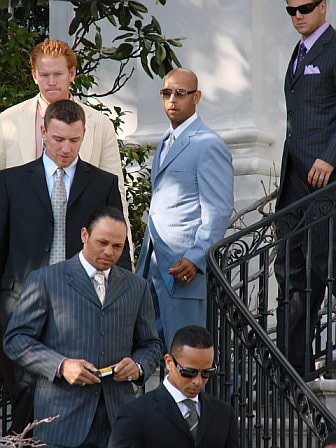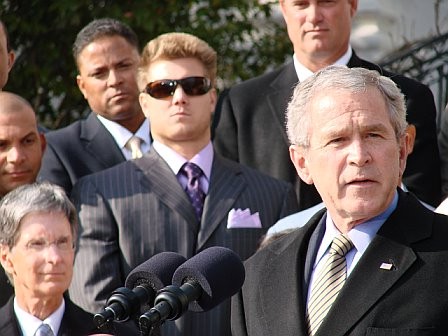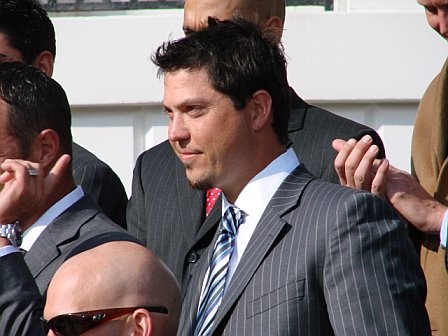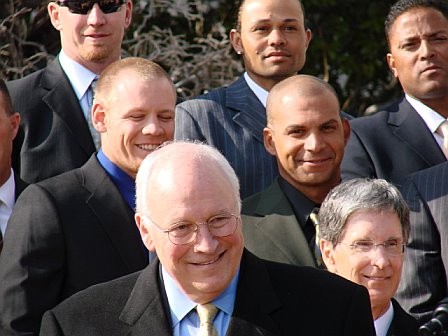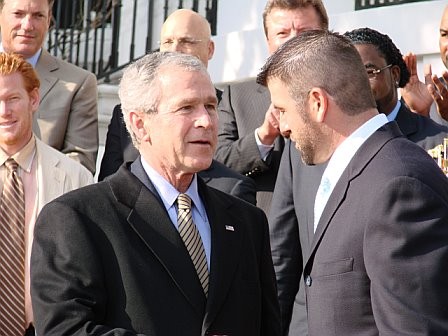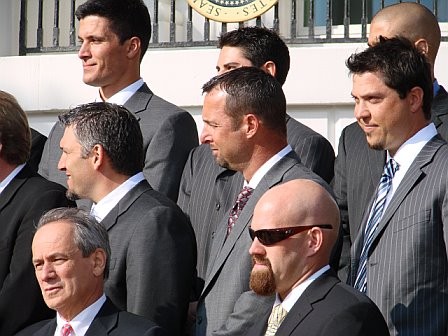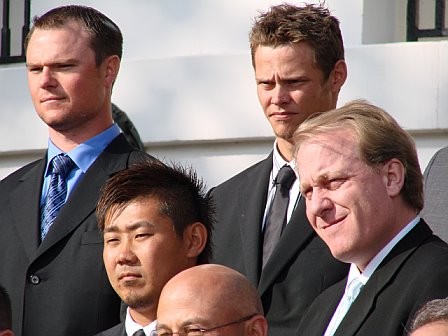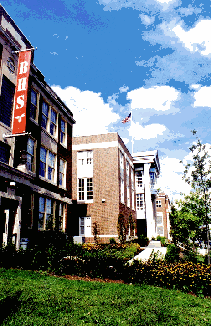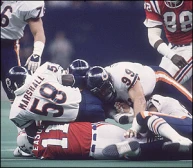 Being Vice President of Red Sox Nation is like being dropped into an alternative universe where you wake up some mornings and say, “I had the craziest dream,” and then you realize, it wasn’t a dream at all, and whatever dreams I DID have couldn’t have been as wild as the reality.
Being Vice President of Red Sox Nation is like being dropped into an alternative universe where you wake up some mornings and say, “I had the craziest dream,” and then you realize, it wasn’t a dream at all, and whatever dreams I DID have couldn’t have been as wild as the reality.
Today will go down as one of those days. I woke up in my bed in Boston, left my five children and wife sleeping to catch a 7am flight to Washington, D.C., drove to the Supreme Court building where Red Sox Nation President Jerry Remy and I were officially sworn in by Justice Stephen Breyer in his chambers during his short break from a hearing on the Exxon Valdez case (with Larry Lucchino and John Henry at our side), drove over to the White House for a tour with Red Sox owners, front office personnel, and members of their families, then went outside to join over 1,000 members of Red Sox Nation on the South Lawn, sitting in the second row behind Ted Kennedy and John Kerry, to see the Red Sox line up behind President George W. Bush for a special ceremony honoring the World Champions. Unfortunately, I wasn’t invited to join the team when they visited Walter Reed Memorial Hospital after the White House visit, but I hear it was quite a memorable, meaningful experience for the players and the patients.
As for the part of the day I was privileged to be involved in, I’ll let the photos speak for themselves.
The Vice-President and President of Red Sox Nation leave the Supreme Court after being sworn in by Justice Breyer (a die-hard Sox fan). Our pledge: “I, Gerald Peter Remy [and Robert Crawford], do solemnly swear that I will faithfully execute the Office of the President [and Vice-President] of Red Sox Nation. I pledge to be true to the game, true to our fans, and to the best of my ability preserve, protect and promote all that is great about the beloved sport of baseball and the Boston Red Sox.”
Regardless of your politics, it’s pretty humbling to walk through the White House and think about the fact that Abraham Lincoln (whom you KNOW would have been a huge baseball fan) lived in and directed the Civil War from there.
Red Sox Nation congregates on the South Lawn. This photo was taken from inside the Blue Room during our tour of the White House, about 45 minutes before the ceremony with the team.
More than 1,000 members of Red Sox Nation await the arrival of the World Champion Boston Red Sox and the President and Vice-President of the United States — including Senator John Kerry and writer Mike Barnicle (who, when he writes about baseball, is right up there with the best of baseball writers).
This is me with a couple of loyal members of Red Sox Kid Nation from Kensington, Maryland who got there early and were right up front — Quentin and Bryce Auster. What a blast for all of us who had the good fortune of applauding the Sox at the White House!
Back at Logan Airport after the trip to D.C., we were pleasantly surprised to be greeted by members of the United Airlines staff, who had confiscated our historic Fenway Park brick while going through security in the morning. We had wanted to use the brick for the swearing-in ceremony, but instead, Rem Dawg and I placed our left hands on an Offical Major League Baseball, imprinted with a gold Red Sox logo, that Justice Breyer had sitting on his desk. (Like I said, he’s a true fan.) Pictured here are Michael Castro (United Airlines), Mardi Fuller (Red Sox), Regular Rob, Debbie Neal (United Airlines), and Joe Januszewski (Red Sox).
Quotes of the day:
1. From Red Sox Vice President Chuck Steedman, next to whom I sat at lunch in a White House dining room: “They don’t do this [fun stuff] for teams that come in second.”
2. From George Bush: “I see Manny’s not here. I guess his grandmother died again. Just kidding. Tell Manny I didn’t mean it. But I do want to quote him. He said, “When you don’t feel goo d, and you still get hits, that’s when you know you’re a bad man.” (Laughter.) I don’t know what that means. (Laughter.) But if bad man means good hitter, he’s a really bad man.”
d, and you still get hits, that’s when you know you’re a bad man.” (Laughter.) I don’t know what that means. (Laughter.) But if bad man means good hitter, he’s a really bad man.”
3. From George Bush: “Red Sox Nation extends beyond the South Lawn, extends beyond New England — it obviously goes to the Caribbean and even the Far East. So we welcome Japan’s Daisuke Matsuzaka here to the South Lawn. His press corps is bigger than mine. And we both have trouble answering questions in English.”
For the full text of Bush’s speech (it was pretty good, actually), click here.
And certainly, one of the great highlights of the day was getting home in time to tuck in my 8 year-old son and present to him a ball autographed by Josh Beckett. “AWESOME, DADDY!” and to tuck in my 5 year-old son and present to him a ball with George Bush’s autograph imprinted on it: “This is perfect, Daddy, since I don’t really like baseball, but I really like famous people! And clean baseballs!”








